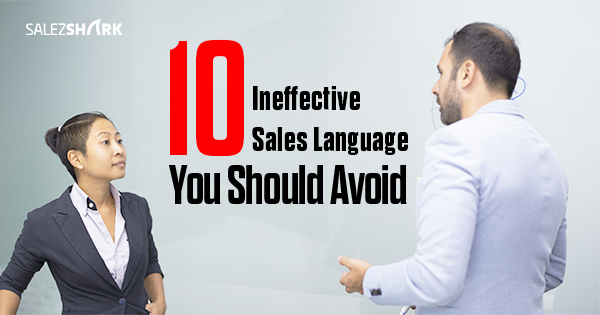In sales, words hold immense power. They can either draw prospects in or push them away. It’s crucial to avoid certain words that might evoke negative responses. Let’s look at these words to avoid in sales chats and suggest better ones for clearer communication. By picking the right words, we can make our sales talks more interesting and convincing. This helps us connect better with potential customers and boosts our chances of making a sale. Check the 10 Ineffective Sales Language that you should avoid during your conversation with the prospect.
Avoid These 10 Languages in Your Next Sales Pitch
Here are some of the Sales Languages that you should avoid while you are talking to your prospect. Check the reasons why these languages can create a negative impact on your prospect.
To Be Honest
Implies Speaker Wasn’t Honest Previously
Using “To be honest” in sales may seem insincere or raise doubt about previous statements. It can make prospects question the speaker’s honesty and undermine trust.
Instead, focus on delivering clear, honest communication throughout the conversation to build credibility and rapport with the prospect.
This is Our Best Price
Implies No Chance for Negotiation or Further Discussion.
When we say “This is our best price,” it can make customers think we’re not open to negotiation, and they might lose interest. It’s better to keep the conversation open and be flexible.
We should show that we’re willing to work with them to find a solution that works for both of us.
I’m not sure, but
Undermines Confidence in Your Knowledge or Expertise
Using “I’m not sure, but” is an Ineffective Sales Language and may make prospects doubt the speaker’s confidence and expertise. It suggests uncertainty and can undermine trust.
Instead, provide clear, confident answers to reassure prospects and instill confidence in the products or services being offered, leading to more successful sales conversations.
This Might Not Work for You
Creates doubt in the prospect’s mind about the suitability of the product or service
Using “This might not work for you” can create doubt in the prospect’s mind, making them question the suitability of the product or service. It suggests uncertainty and can lead to lost opportunities.
Instead, focus on highlighting the benefits and value proposition to show how the offering meets their needs.
I’ll Try My Best
Suggests Uncertainty or Lack of Commitment
Saying “I’ll try my best” implies uncertainty and a lack of commitment, which can undermine confidence in the speaker and the product. It doesn’t inspire trust or convey reliability.
Instead, assure the prospect of your dedication and capability to meet their needs, fostering confidence and trust in the sales process.
Our Competitors are Not as Good as Us
Comes off as overly competitive and may be seen as unprofessional.
Saying “Our competitors are not as good as us” is an Ineffective Sales Language and comes off as overly competitive and may seem unprofessional. It can make prospects skeptical and create a negative impression.
Instead, focusing on highlighting the unique value and benefits of your product or service without disparaging competitors will build trust and credibility.
You Should
Implies Telling the Prospect What to do Rather than Offering Guidance or Suggestions
Using “You should” may sound pushy and presumptuous, potentially putting off prospects. It can come across as telling them what to do rather than offering guidance.
Instead, focus on suggesting options or providing advice as per their needs, fostering a collaborative and consultative sales approach.
Let me Check with My Manager
May Make the Prospect Feel like they’re Not Dealing with the Decision-Maker
Saying “Let me check with my manager” may give the impression that the salesperson lacks authority or confidence. It can delay the sales process and make prospects feel less valued.
Instead, empower sales reps to make decisions or offer solutions independently, demonstrating professionalism and efficiency in the sales conversation.
This is a Limited-Time Offer
May Come off as Pushy or Create a Sense of Urgency that isn’t Genuine.
Using “This is a limited-time offer” may create artificial urgency, making prospects feel pressured and skeptical. It can come across as a sales tactic rather than a genuine opportunity.
Instead, focus on highlighting the value and benefits of the offer, encouraging prospects to take action based on its merits.
Also Read- How to Convert Leads into Customers in 2024?
Trust Me
Puts Pressure on the Prospect to Trust the Speaker Rather than Building Trust through Actions and Credibility
Using “Trust me” can backfire as it puts pressure on prospects to trust without earning it. It may raise doubts about the speaker’s credibility and intentions.
Instead, focus on building trust through actions, providing evidence, and addressing concerns to genuinely earn the prospect’s trust throughout the sales process.
Conclusion
In sales, certain language can hinder rather than help. Avoid phrases like “trust me” or “limited-time offer,” which may alienate prospects. Instead, focus on building trust through genuine communication and avoiding pressure tactics. By steering clear of these ineffective phrases and adopting a customer-centric approach, sales conversations can be more engaging and fruitful, leading to stronger relationships and increased sales opportunities.

